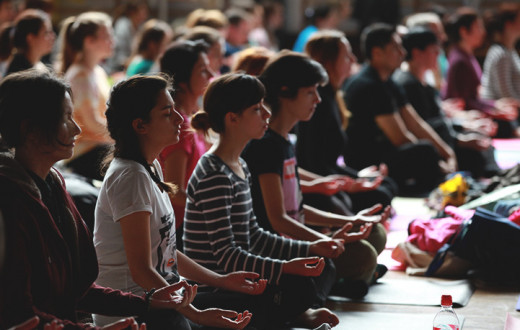By Elizabeth Herman┃Posted: May 28, 2019
The fact that our country hasn’t joined others in a global commitment to reduce plastic pollution is difficult to understand. We must temporarily accept the sad reality that, because of this isolationist period in our country’s history, government leaders are dropping the ball when it comes to worldwide environmental efforts. But we don’t have to remain silent or inactive.
The recent Basel Convention in Geneva, Switzerland brought together leaders from 187 countries to commit to reducing plastic pollution and toxic chemical pollution. The United States wasn’t among them. What can we do to change minds to catch up with the rest of the world?
Although we live in a land that doesn’t, for now, officially share the values of the rest of the world, that’s no reason to forego our personal sustainability efforts. Reducing, reusing and recycling plastic, and steering our purchasing decisions away from polluting chemicals, are among the crucial commitments that everyone needs to renew regularly.
Grocery packaging and bags
Shopping at the grocery store sounds like a simple thing to do, but the way our food is packaged has implications for the future of our planet. Solving our environmental problems doesn’t seem to be simple but everyone will have to make changes to improve our chances of keeping our ecosystems healthy and clean.
Why does it seem so complicated to stop so much plastic trash from polluting our oceans? Telling the grocery clerk not to give you a plastic bag is not that difficult. Taking your items to your car in your own reusable bags, or using your cart to take them into the parking lot where you can load them into reusable bags at the car, seems simple.
Food containers and utensils
We love the freedom to go on picnics and enjoy the outdoors, at the beach or at a local, state, or national park. But all of the plastic in our food containers and wrapping goes somewhere; it doesn’t just disappear. If you can’t use it again, rinse it out and recycle it. If you can use it again, wash it and re-use it! If you can use something else, don’t buy it in the first place!
Like all other plastics intended to be used once and tossed, single-use water bottles should be proactively avoided. Reusable water bottles made from various materials, like stainless steel, glass, and more durable plastic are easy to obtain and re-use over and over. At events away from home, your own bamboo utensils and reusable plates will serve just as well as plastic.
I recently asked a friend at a local kitchen where I volunteer if it gives her great joy to make landfills bigger and oceans more replete with trash. Her answer was no, but her reasons for throwing away so many recyclables reflected the idea that making the effort to recycle won’t work. She told me that the materials placed in the large bins at the edge of the property would never be picked up, while my years of recycling there told me otherwise.
The policy this kitchen used to justify the waste is, “We reserve the right to throw things away.” Thank goodness this right isn’t written into our constitution’s Bill of Rights. But I’m challenged to find a way to change the mindset of the kitchen, so at least our contribution to plastic pollution can be eased and our footprint on the earth less obnoxious.
A mindset aligned with nature
Somehow, before it’s too late, this country and all of its citizens must adopt a new mindset about the place of nature in our lives. Nature isn’t something we can tame to act as we would like. Too many of us seem to want nature to swallow up our trash and make it disappear, so we can use as much as we want and throw it all away after only one use with no consequences.
That’s not going to happen. The world is one organism. We feel the consequences every time there’s a picture of miles and miles of trash on the surface of the Pacific, and every time we and our neighbors lose homes to wildfires and flooding during increasingly severe droughts and hurricanes year after year. When farmers in India burn their fields as a necessity, any plastic litter that lies there sends billions of microparticles into the air, which humans breathe. The harmful substances must go somewhere, to places that provide us with food, air and water: our land, atmosphere and oceans.
Our very survival depends on thinking differently about the elements that nurture life. As nature has given birth to us, nurtured us, so must we nurture the sustainability of our world. It isn’t just our man-made technologies that sustain us, but our inventions can create better ways of living that keep plants and animals, and the sources of food for all, clean and alive.
Click here to know more about Art of Living’s Mission Green Earth initiative in collaboration with the UN. Join us and help us to keep our environment safe and green.
We invite you to be part of this mission and inspire others as well. Social media can be a huge help here. Share your ideas to reduce plastic pollution on social media. Inspire 5 more friends to join you in reducing single-use plastic with #BeatPlasticPollution and #MyMissionGreenEarth and tag us at fb.me/mymissiongreenearth or instagram.com/mymissiongreenearth to make a difference!
By Elizabeth Herman - PhD in English, with concentrations in Rhetoric and Composition, and Literature, she offers writing support to clients, teaches locally, lives in Boone, NC, and volunteers for a better world.



















